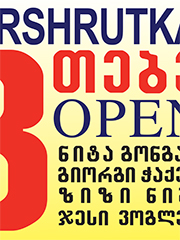Across post-Soviet space is a category of quasi-informal public transportation called marshrutka—or route taxi. Usually housed in a small bus or large van, the marshrutka occupy a central place in the constellation of mobilities that define everyday life. Somewhere between a bus and a taxi, the marshrutka travel along relatively fixed routes but do not have designated stops—and simply respond to the vocalizations or gestures of its riders or would-be passengers.
While in some countries the marshrutka network occupy a place within the informal economy, in Tbilisi and across most of Georgia the marshrutka are in fact coordinated in an ownership patchwork that is at once formal and sanctioned but still subject to the routine and knowhow of individual drivers. Ownership, risk, and reward are set in an incomplete and shifting network of relationships that chart emerging social orders of a new political economy; while riders, drivers, vehicles, and stoppages all map a new body politic onto the city itself.
In this project, we use the marshrutka as a narrative device for the study of mobilities and immobilities in the post-soviet city. As thing, system, relation, and tool, we learn from the marshrutka ways of accessing intangible material such as trust, boredom, and expectation. The system of gestures, habits of vocalization, and the intimacy of bodily contact steer our work in video, sound, and installation, as we ride along the marshrutka routes and the urban politics that they index.
|
